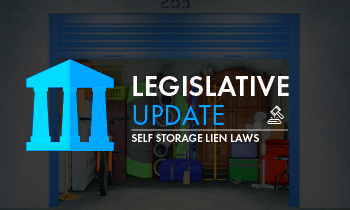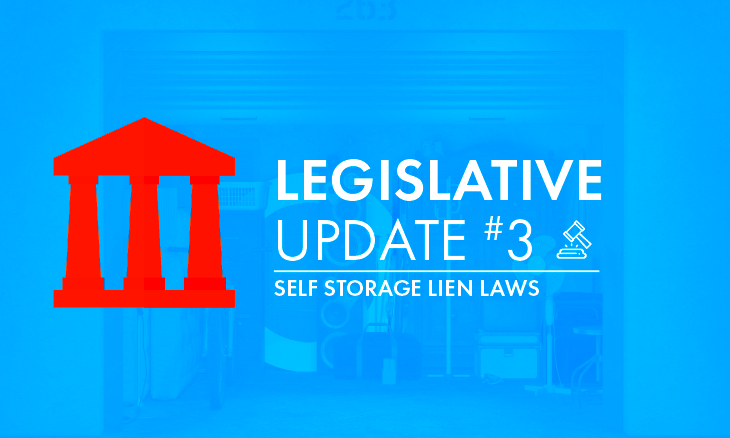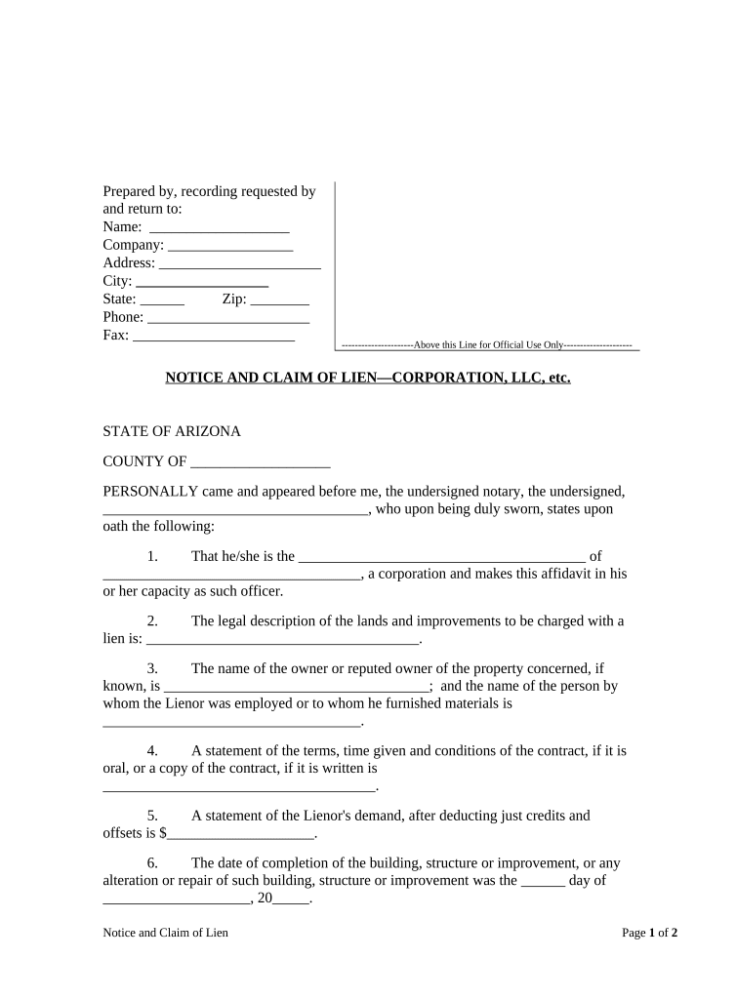Arizona’s Storage Lien Compliance and Enforcement Laws
Arizona’s storage lien laws provide a framework for storage facility operators to secure payment from tenants. When tenants fail to pay their rent, these laws allow operators to place a lien on the tenant’s stored property. Understanding these laws is crucial for both facility owners and tenants to ensure compliance and protect their rights. This blog post will explore the ins and outs of Arizona’s storage lien laws, providing essential information on enforcement and compliance.
Understanding Storage Liens in Arizona

A storage lien is a legal claim against property stored in a facility due to unpaid rent or fees. In Arizona, these liens give storage operators the right to retain possession of the tenant’s belongings until the debt is settled. Here are some key points to understand about storage liens:
- Definition: A storage lien is created when a tenant fails to pay rent for their storage unit.
- Scope: The lien applies to all personal property stored within the unit.
- Duration: A lien lasts until the debt is paid or the property is sold.
It’s important for tenants to be aware that storage liens can affect their ability to access their belongings. For storage operators, understanding how to enforce these liens legally ensures a smooth process when dealing with unpaid accounts.
Legal Requirements for Enforcing Storage Liens

Enforcing a storage lien in Arizona involves following specific legal procedures to ensure compliance with state laws. Here’s a breakdown of the essential legal requirements:
- Notice Requirements: Operators must provide written notice to tenants about their outstanding balance. This notice should include the amount owed and a deadline for payment.
- Final Notice: If the tenant does not respond, a final notice must be sent, often specifying the potential sale of the stored property.
- Waiting Period: Arizona law requires a waiting period before taking further action, giving tenants a chance to pay their debt.
- Sale of Property: If the debt remains unpaid, the operator can sell the stored items. They must conduct the sale publicly and provide proper notice.
Failure to follow these legal steps can lead to disputes and potential legal issues for storage operators. It’s crucial for both parties to understand their rights and responsibilities under the law.
Notices and Communication with Tenants
Effective communication is crucial when dealing with storage liens in Arizona. The law requires storage operators to provide tenants with proper notices about their account status. Here’s how it works:
- Initial Notice: When a tenant misses a payment, the storage facility must send an initial notice, usually within a few days. This notice should inform the tenant of the overdue amount and the implications of non-payment.
- Delivery Methods: Notices can be delivered via mail, email, or in-person, depending on the contact information provided by the tenant. It’s best practice to document how and when notices are sent.
- Final Notice: If the tenant fails to respond to the initial notice, a final notice must be sent. This notice typically states that the property may be sold if the debt remains unpaid.
- Clear Language: All communications should use clear and simple language, so tenants understand their obligations and the potential consequences of inaction.
Open communication not only helps ensure compliance with legal requirements but also fosters a better relationship between the storage facility and its tenants. Tenants should feel comfortable reaching out to discuss any issues regarding their accounts.
Process of Selling Stored Property
When a tenant fails to pay for an extended period, the storage operator may proceed with selling the stored property to recover the owed amount. Here’s a step-by-step guide to this process:
- Final Notice Sent: Before selling any items, a final notice must be sent, informing the tenant of the sale date and providing a last opportunity to pay the balance.
- Waiting Period: Arizona law requires a waiting period after the final notice. This time allows the tenant to respond and settle their debt.
- Public Sale Announcement: Operators must publicly announce the sale. This can be done through local newspapers or online platforms, depending on the size of the operation.
- Conducting the Sale: The sale should be conducted in a fair and transparent manner. Items can be sold at auction, and proceeds go towards covering the unpaid rent and costs associated with the sale.
- Remaining Proceeds: If there are any funds left after covering the debt, those should be returned to the tenant. If the tenant cannot be located, the funds may need to be held as per state law.
Understanding this process is essential for both storage operators and tenants. It ensures that both parties know what to expect and helps avoid misunderstandings.
Rights of Tenants Under Storage Lien Laws
Tenants have specific rights under Arizona’s storage lien laws that protect them during the lien enforcement process. Knowing these rights is vital for tenants facing potential lien actions:
- Right to Notice: Tenants are entitled to receive proper notices regarding their unpaid rent. They should be informed about the amounts owed and the actions that may follow.
- Right to Access Property: Until a lien is enforced and property is sold, tenants have the right to access their belongings. This access is crucial for them to retrieve personal items.
- Right to Fair Sale: If property is sold due to a lien, tenants have the right to a fair process. The sale must be public, and they should receive notice about how and when it will occur.
- Right to Remaining Proceeds: After a sale, any leftover funds must be returned to the tenant. If the tenant cannot be located, operators must follow state guidelines for handling those funds.
Understanding these rights empowers tenants to advocate for themselves during disputes and ensures that they are treated fairly throughout the process.
Common Issues in Storage Lien Compliance
While Arizona’s storage lien laws provide a clear framework for operators and tenants, several common issues can arise during compliance. Being aware of these potential pitfalls can help both parties navigate the process more smoothly:
- Improper Notice Delivery: One frequent issue is the failure to deliver notices correctly. Operators must ensure that notices are sent to the right address and via acceptable methods. Miscommunication can lead to disputes.
- Failure to Allow Grace Period: Sometimes, storage operators may not provide the required waiting period before selling items. This can result in legal trouble if tenants haven’t had a fair chance to respond.
- Inadequate Documentation: Storage facilities must keep detailed records of all communications, notices, and transactions related to the lien process. Without proper documentation, operators can face challenges in legal disputes.
- Unclear Sale Procedures: If a sale is conducted without proper public announcement or transparency, it could be deemed unfair. Operators must adhere to legal requirements to protect their interests.
- Tenant Misunderstanding of Rights: Tenants often lack understanding of their rights under the storage lien laws. This can lead to frustration and conflict, making it crucial for both parties to communicate effectively.
By being proactive and addressing these common issues, both storage operators and tenants can reduce the likelihood of misunderstandings and disputes.
Resources for Legal Assistance
If you find yourself in a situation involving storage liens in Arizona, several resources can provide valuable legal assistance and guidance. Here’s a list of helpful options:
- Arizona Department of Real Estate: This state agency can provide information on laws and regulations related to storage liens.
- Legal Aid Organizations: Nonprofit legal aid organizations often offer free or low-cost legal services to tenants facing disputes. Examples include Community Legal Services and Arizona Legal Center.
- Local Bar Association: Many local bar associations provide referral services to connect individuals with qualified attorneys specializing in storage lien issues.
- Online Legal Resources: Websites like Nolo.com and LegalZoom offer articles and guides that explain storage lien laws in more detail.
- Community Mediation Services: These services help facilitate discussions between storage operators and tenants to resolve disputes amicably.
Utilizing these resources can help both parties better understand their rights and obligations, paving the way for a smoother resolution of storage lien issues.
FAQs About Arizona Storage Lien Laws
Here are some frequently asked questions that can help clarify common concerns regarding Arizona’s storage lien laws:
- What is a storage lien? A storage lien is a legal claim placed on personal property stored in a facility due to unpaid rent or fees.
- How long does a storage lien last? A storage lien remains in effect until the debt is paid or the property is sold according to legal procedures.
- What must a storage operator do before selling property? Operators must send notices to the tenant and allow a waiting period before proceeding with the sale.
- Can tenants access their property during the lien process? Yes, tenants have the right to access their belongings until a lien is enforced and the property is sold.
- What happens to the proceeds from a sale? Any funds remaining after covering the debt and sale costs should be returned to the tenant. If they cannot be located, operators must follow state guidelines for handling those funds.
These FAQs aim to provide a clearer understanding of storage lien laws and help both operators and tenants navigate the process with confidence.
Conclusion on Storage Lien Compliance and Enforcement
Understanding Arizona’s storage lien compliance and enforcement laws is essential for both storage operators and tenants. These laws are designed to protect the rights of all parties involved and ensure a fair process. By adhering to the legal requirements for notices and communication, operators can avoid potential disputes and maintain a good relationship with their tenants. Tenants, on the other hand, should be aware of their rights and the process involved in lien enforcement to safeguard their belongings. Ultimately, clear communication, compliance with the law, and awareness of rights can lead to smoother interactions and resolutions in the realm of storage liens.


